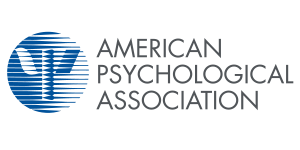The B.S. in Psychology program at Albizu University, Miami campus, gives you the foundation you will need to build a career in mental health as well as the required skills and knowledge to enter graduate school. Our program integrates social, emotional, and behavioral theories with current trends in psychology and mental health. Albizu University’s multicultural approach focuses on the worth and dignity of all people, regardless of background, origin, or life circumstances.
START YOUR CAREER PATH INTO THE FASCINATING FIELD OF PSYCHOLOGY




ACCREDITATION
Founded in 1966, Albizu University is the first professional school of psychology established in North America and the Caribbean. The university is regionally accredited by the Middle States Commission on Higher Education. In addition The Doctor of Clinical Psychology ( Psy.D program is accredited by the American Psychological Association ( APA) since1991.
PROGRAM HIGHLIGHTS
Albizu University has historically provided professional training that is sensitive to cultural and ethnic issues. Following this tradition, the B.S. in Psychology program familiarizes you with a variety of multicultural topics, enhancing your ability to work with diverse populations.
Courses are taught by an expert group of faculty with real-life, practical experience in various fields of psychology. The availability of day, evening, and weekend classes provides you with the flexibility and convenience you need to meet the other demands of life.
As an undergraduate, your studies are tailored to your academic interests and goals. Should you choose to focus your undergraduate studies on a specific field, seven minors are available: Cross-Cultural Studies, Child Psychology, Forensic Psychology, Health Psychology, Applied Behavior Analysis, Gay and Lesbian Studies, and Case Management Studies. You will also have the opportunity to take a select number of graduate-level courses as electives, paving the way for entrance into a master’s degree program.
CAREER OPPORTUNITIES
Graduates of Albizu University’s B.S. in Psychology program find employment as social workers, case managers, human resource professionals, certified addiction professionals, behavioral technicians at hospitals, child life specialists, and associate behavior analysts. Some begin careers in corrections or law enforcement or apply their studies in psychology to teaching in the Miami-Dade County Public Schools, working in areas with a critical shortage of teachers.
ADMISSION REQUIREMENTS
- A completed and signed application form accompanied by the $25 application fee. Begin the application process by setting up an online account.
- Official transcripts from high schools, colleges, universities, and other post-secondary educational institutions attended. Please note the following requirements:
- Applicants must have an overall grade point average (GPA) equivalent to 2.0 or higher to be considered for admission.
- The transcripts must include any degree received. A GED or a high school diploma from an accredited secondary school in the United States is required.
- Applicants with high school diplomas from academic institutions outside the United States whose standards of education are substantially equivalent to the standards of education of those institutions in the United States will also be considered. The diploma must be evaluated by an authorized credential evaluation agency (see below) and must include the GPA.
- Proof of appropriate immigration status for all international students. International students should also submit an official evaluation of academic credentials by an authorized agency. For detailed information on this requirement, please refer to the Credential Evaluation Services pageof the Albizu website. All admission credentials for international students must be received by Albizu University at least 90 days prior to the beginning of the session of expected enrollment.
Founded in 1966, Albizu University is the first professional school of psychology established in North America and the Caribbean, with an ongoing focus on serving culturally diverse populations.

Expert Faculty
Our courses are taught by professors who are both academics and active professionals. Faculty members bring to the classroom a working expertise in theories, research, and practice in their fields.

A Strong Heritage
Founded in 1966 Albizu University is the first professional school of psychology established in North America and the Caribbean.

Flexibility
Albizu University offers morning, afternoon, evening, and night classes to provide you with the flexibility and convenience you need to meet all of life’s demands. Online classes and programs are also available.
FACULTY TESTIMONIALS

Albizu University is a gateway to opportunities for students to achieve their full potential in meeting their academic and professional goals. The Bachelor of Science in Psychology program offers greater insight into the many facets of human behavior. The Bachelor of Science in Criminal Justice is designed to further student’s knowledge in the field of criminology and provide for the practical application of forensic techniques in crime related scenarios. Courses in areas such as psychology and criminal justice empower students with the necessary tools and skills to pursue their career goals. In addition, at Albizu University a student is an individual, not just a number, and it is much easier for everyone to feel part of the community. Students profit from personalized study paths and the availability of professors, which improves the student learning experience and enhances the life of the student by facilitating graduation. Also, academic advisors are available to help students select courses and guide them throughout their university years to ensure that the students achieve their academic and educational goals.
-Alfredo J. Picanol, LMHC.

The undergraduate psychology curriculum at Albizu University reflects diverse interests with a common theme: the understanding of the individual. Generic core courses in psychology such as Child Psychology, Abnormal Psychology, Forensic Psychology, Health Psychology, Theories of Personality, Social Psychology, and many others provide a foundation to a deeper understanding of the person. The various areas of specialization or minors also provide a focused attention on diverse areas of human existence. Psychology degree minors such as Case Management, LGBT Studies, Forensic Psychology, Applied Behavior Analysis, Health Psychology, and Cross-Cultural Studies contribute to the education and formation of professionals ready for graduate school or the human services workforce. Embedded in all of our courses is a special attention to cultural diversity and inclusion.
-Rafael Martinez, Ed.D.
Undergraduate Psychology Program Director

Albizu University‘s commitment to its students expands beyond the academic excellence and the development of future professionals in the fields of education, psychology, speech and language, and human services. AU faculty mentor and nurture each student’s unique characteristics and interests by providing easy access to advisors and student support services, who work collaborative to guide students to reach their full potential. In addition, AU offers flexible schedules and a variety of instructional methods ranging from traditional to hybrid and online courses. Students receive invaluable academic instruction from professors who are experts in their respective fields.
– Yamila Lezcano, LMHC
Assistant Professor
STUDENT TESTIMONIALS

Culture and diversity were defining factors in my choice of Albizu University. First enrolling at the San Juan, Puerto Rico, campus and then transferring to Miami allowed me to embrace the opportunity to minor in LGBTQ studies. This added a chance for immersion in populations that have been marginalized and for educating myself and others in the variances of human attraction. This and the fact that professors are approachable makes me want to stay at Albizu to obtain my Bachelor of Science in Psychology.
-Kevin Torres
Utuado, Puerto Rico & Puebla, Mexico

Albizu University exposes its students to a multicultural approach in order to educate us on diversity within societies whether it be race, ethnicity, religion, or orientation. Taught by some of the brightest doctors, whom guide us and do the most to help each student achieve their goals as future therapists. Here at Albizu, we are offered what I feel is ‘A once in a lifetime opportunity’ to a spectacular education. Having started at this University 3 years ago, I wouldn’t think this school would be such a big part of me and my heart and cannot wait to see the more knowledge I gain here once I begin the Graduate Program.
Stefanie Sanabria
LEARN WITH THE BEST
COURSES

CORE COURSES:
Core Area II: Major Concentration Courses (45 credits; note that PSY202 and PSY200 are prerequisites for all major concentration courses)
Advanced-level integration of historical Western and Eastern theoretical principles of psychology as a social and behavioral science. Conflicting views on methodology and practice will be considered along with their implications for multicultural educational settings.
This course reviews the major theoretical schools of thought and their applications to personality theory. Lectures will encompass psychoanalytic, behavioral, cognitive, and humanistic paradigms. The interaction of personality traits with environmental factors and cultural influences and their effect on behavior will be discussed. Topics will be discussed from a multicultural perspective to help students expand their views.
This course presents an experimental and theoretical approach to the study of learning and cognition to include problems, methods, and content in the area of learning. Emphasis will be placed on attention, memory, organization of knowledge, and problem-solving across cultures.
An introduction to the influence of cultural factors that serve as independent variables in the dynamic process of personality formation and interpersonal exchange. This course is designed to develop multicultural awareness and sensitivity in future elementary school teachers. (Prerequisite: Any cross-cultural studies course, such HIST202 – Multicultural America or BP438 – Mental Health in American Minorities.)
A review of the major theories and approaches to an understanding of the lifespan. Factors such as cognitive development, neurological development, and social, cultural and intellectual influences are explored. Topics will be discussed from a multicultural perspective to help students expand their views.
Experimental analysis of the theories and literature pertaining to social influences on individual behavior and on family, group, and interpersonal dynamics. Readings, demonstrations on methodology, design implementation, and interpretation of research will define the approach. Topics will be discussed from a multicultural perspective to help students expand their views.
Theories, classifications, and research issues relevant to understanding human psychopathology, including clinical syndromes and theories of pathology. Topics will be discussed from a multicultural perspective to help students expand their views.
An in-depth analysis of the human nervous system, its subsystems, and the physiological bases of behavior.
A review of the application of statistical concepts to psychological investigation. Basic descriptive and inferential statistics are reviewed. Topics will be discussed from a multicultural perspective to help students expand their views. (Prerequisite: Any algebra/mathematics course, such as MAT300 – Mathematics for Health Professionals or MATH102 – Intermediate Algebra.)
An introduction to principles, practices, and procedures in the conduct of scientific research. Statistics is recommended as a prerequisite. Topics will be discussed from a multicultural perspective to help students expand their views. (Prerequisite: PSY408 – Statistics in Psychology
Ethical principles and guidelines for psychologists, mental health counselors, and family therapists will serve as the main references for discussion that includes multicultural perspectives on ethical values.
This course discusses the basic elements of industrial psychology. Issues related to the psychology of work and motivation are developed and discussed. Emphasis will be placed on the impact of culture in the process of worker motivation in a growing global economy.
This course will introduce students to the major career paths in psychology. Students will briefly review the fields of neuropsychology, child psychology, industrial/organizational psychology, human resources, forensic psychology, and case management, as well as employment requirements in these fields. Students will also begin to prepare for specialization in their chosen fields through class exercises and practical research in these fields. The field of cross-cultural studies and its implications for mental health careers will also be addressed.
This course reviews the major theories of group dynamics in multiple cultures and surveys the relevant literature, with the intent of exploring the ethics of micro-skills required in group processes. Topics will be discussed from a multicultural perspective to help students expand their views.
This course reviews the types of and approaches to interviewing used in gathering information in psychology. Discussion of methodology and terminology will be explored. Emphasis will be placed on culturally sensitive interviewing techniques.
Minor in Cross-Cultural Studies (15 credits)
This course presents types of cultural and racial groups, causes and consequences of prejudice and discrimination, and suggests approaches to resolving conflicts that arise due to the inter-group differences. African-American, Hispanic/Latino, Asian American, and Native American are some of the minority groups included.
This course presents the historical, social, political and economic factors affecting individuals of African descent living in America as well as the impact on the development and growth of the United States. This course is designed to raise students’ awareness and sensitivity of the multicultural composition of American culture.
This course examines the major social, economic and political development of Latin American history. Internal problems of these nations and the role in the Pan American movement will be discussed. The influence Latin American immigrants have had on the growth and development of the United States is emphasized. This course is designed to raise students’ awareness and sensitivity of the multicultural composition of American culture.
The students in this course will be exposed to the acculturation process of immigrants in the United States. The different acculturation stages of children, adolescents, adults and families will be analyzed and discussed. The students will study the emotional conflicts, traumas and the process of acceptance into a new culture experienced by immigrants of different ethnicities and cultures after their arrival in the USA.
This course presents an overview of the history, social, political and cultural customs of Asian cultures. This course is designed to provide students with cultural overviews, cross cultural communication skills, business and social protocols when dealing with Asians and Asian Americans, both locally and abroad, in order to prepare the student to address the needs of a global market place. Cultural sensitivity is emphasized.
Minor in Child Psychology (15 credits)
This course serves to introduce the student to the field of psychology as it pertains to the normal as well as abnormal development of the child. The course will also discuss how different cultures affect child development.
An introduction to human development focusing on infancy and childhood considering theoretical perspectives on intellectual, personality and social development. Topics in psychology of infancy and childhood, from a multicultural perspective, shall be discussed to help students enlarge their multicultural views.
A comprehensive review of the development of psychological, social and biological factors contributing to the change from childhood to adolescence and from adolescence to adulthood. Topics in psychology of adolescence, from a multicultural perspective, shall be discussed to help students enlarge their multicultural views.
This course provides a review of the literature and findings in the development of family systems from multiple theoretical perspectives. A review of the family system within a multicultural society will be conducted.
This course explores the application of psychologically derived principles to the multicultural classroom environment. Topics in educational psychology, from a multicultural perspective, shall be discussed to help students enlarge their multicultural views.
Minor in Forensic Psychology (15 credits)
This course serves to introduce the student to the field of forensic psychology. Topics include a review of the relationship between the legal and psychological professions, theories of criminality, corrections, and the etiogenesis of criminal behavior from a familial, environmental and genetic standpoint. Cultural stigmas in psychology and the law will be discussed.
This course presents a comprehensive survey of the world of criminology. It will introduce the student to the field of criminology: its nature, area of study, methodologies, and historical development. It will define crime, its prevalence, and its trends and patterns in the crime rate. It will discuss how people fall victim to crime and who is likely to become a crime victim. It will review how our system of criminal law developed and describe the basic elements of crimes. It will introduce the student to the science of criminology by reviewing the theories of crime to include theories based on individual traits, which holds that crime is either a free-will choice made by an individual, a function of personal psychological, or biological abnormality, or both, and theories based on sociology and political economy. The course will present an overview of crime patterns that will be clustered into four typologies: violent crime, common theft offenses, enterprise crimes, and public order crimes.
This course presents a comprehensive survey of the world of juvenile delinquency. The student will be introduced to the nature and extent of delinquency, the causes of delinquency, environmental influences on delinquency in the United States, prevention, diversion, and treatment of delinquency, and the social control of delinquency. The course will present how delinquent behavior affects the larger society, and measures the nature and extent of delinquency by examining the available statistical tools. Review explanations of delinquent behavior, individual causes ranging from free will to biological and psychological positivism, social structural factors, social process factors, and social reaction theories. It will examine the relationship between delinquency and gender, problems in the family, such as child abuse, experiences in the school, peers and gang delinquency, and drug abuse. It will also examine primary, secondary, and tertiary prevention of delinquency. The course will present the student with an overview of the justice process, the police-juvenile relation, the juvenile court, community based corrections, and institutions for juveniles.
This course provides an examination of the history, organization, and function of the various local, state, and federal agencies that compose the criminal justice system. It focuses on the development of justice and law, crime, and punishment, the administration of laws, the agencies’ functions, career orientation, and public relations. This survey is organized around the three major components of the criminal justice system: police, courts, and corrections.
This course introduces the student to the roles and responsibilities of the forensic psychologist. Topics will include law enforcement selection, profiling, sanity, competence, assessment of dangerousness, sexual abuse, custody evaluations, eyewitness evidence, jury selection, trial consultation, and sentencing issues. The student will be exposed to psychological procedures and the range of psychotherapeutic interventions in forensic psychology, and will gain familiarity with test administration. Cross cultural perspectives will be discussed to help students enlarge their multicultural views.
Minor in Health Psychology (15 credits)
A survey of applied psychology in the medical field. Includes stress and disease etiology, psychosomatics, health benefits from a multi-cultural viewpoint, adherence to therapeutic regimes, emotional adjustments to illness and rehabilitation.
This course presents functional anatomy of the human body and its relation to disease process. Inter-relationships of body organ systems and regulatory mechanisms will be discussed in relation to human anatomy and physiology. Culture specific disease processes will also be a topic of focus.
This course serves to introduce the student to the community service network of agencies, which serve as a support for individuals and families in need of assistance from society. Minority specific services will also be a topic of focus.
This course introduces the student to the field of aging studies and gerontology across cultures. The issues of ageism and stereotyping are discussed. Topics in Psychology of Aging, from a multicultural perspective, shall be discussed to help students to enlarge their multicultural views.
A general overview of the human disease process within the context of health psychology. The biological and emotional impact of such disorders of the cardiovascular system, neurological disorders, gastrointestinal and renal/reproductive systems will be addressed. Ethnic differences in the diagnosis and treatment of disorders will also be a topic of discussion.
Minor in Applied Behavior Analysis (15 credits)
This course provides students with a foundational knowledge of the history, concepts, principles, and philosophical assumptions associated with behavior analysis. Students will be introduced to the behavioral terminology and to the various dimensions of applied behavior analysis used for developing and evaluating interventions. Prerequisites: PSY200.
This course focuses on the systems of behavioral change and the issues surrounding the application of these principles in applied behavior analysis. Students will identify specific considerations in developmental abilities, environmental contingencies and behavioral deficits when utilizing behavioral methods. Procedures in behavioral change, including baseline skill assessments, incidental teaching, direct instruction, verbal behavior assessment and therapy, discrimination training, and generalization of behavior change, will be discussed. The course will also review contingency management and supervision strategies for acquired behaviors. Prerequisites: PSY200, EAB300, and EAB301.
In this course, students will be exposed to the ethical guidelines required for conducting applied behavior analysis in a professional manner. Students will understand the importance of following the Behavior Analyst ethical guidelines that include standards such as practicing with one’s competency limits, obtaining consent, utilizing research based methods, and protecting confidentiality. This course will increase students’ awareness of the importance of protecting clients’ dignity, health, and safety. Prerequisite: PSY200.
In this course, the students will learn to conduct functional assessments to identify target behaviors. Based on findings, they will be able to design behavioral change systems. At the end of this course, students will be able to identify the functions of behavior; define, measure, and graph behavior; identify and conduct the three approaches for functional assessment; identify, select and implement functional interventions and identify monitoring procedures. Prerequisites: PSY200, EAB300, and EAB301.
This course exposes students to the research methodology and techniques to evaluate behavioral interventions. Various experimental techniques will be reviewed, including single0subject experimental designs and direct observational research components. Behavior assessment and intervention strategies will be addressed in the context of evaluating research methodology. Methods of summarizing and analyzing data during the process of direct observation and measurement of behavior will also be explored. Prerequisites: PSY200, EAB300, and EAB301.
Let’s chat
about your goals and how we can help you reach them.





